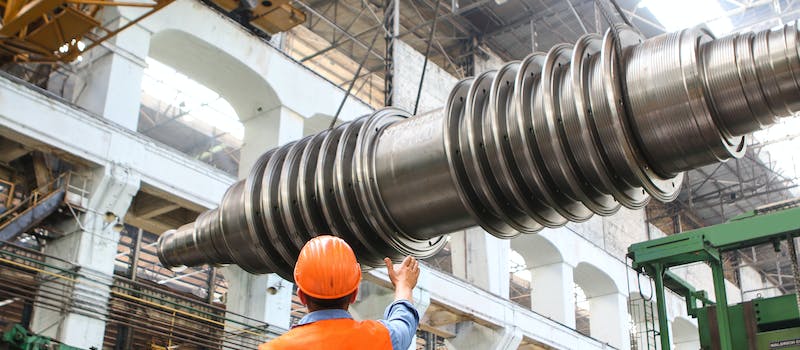Quality control is a critical aspect of manufacturing processes that ensures products meet predetermined standards and customer expectations. As technology continues to advance, innovative solutions are emerging to enhance and streamline quality control systems. This article explores several cutting-edge innovations in manufacturing quality control, including integrated learning maintenance systems, 3D scanning arms, alternative measurement techniques, the selection of calibration providers, the impact of AI on quality control, compact solutions for production robot integration, state-of-the-art CMOS image sensors, and collaborative efforts in AI safety.
Integrated Learning Maintenance System for Early Fault Identification
Manufacturing plants often experience disruptions during vehicle assembly due to unforeseen faults. However, an integrated learning maintenance system has been developed to tackle this issue. By continuously monitoring and analyzing data from various sensors and components, this system can detect potential faults early, allowing for proactive maintenance and avoiding more than 500 minutes of assembly disruption every year. This technology saves valuable time, reduces manufacturing costs, and ensures the smooth operation of assembly lines.
Foundry Guarantees Product Quality with 3D Scanning Arm
Fonderies Fraisse, a foundry facing challenges in product quality assurance, has adopted a 3D scanning arm to revolutionize its quality control processes. Traditional methods, such as using a Coordinate Measuring Machine (CMM), had limitations in the range of checks they could perform. However, with the implementation of a 3D scanning arm, the foundry can now perform detailed inspections, capturing precise dimensional data to ensure product quality. This innovative technology has increased accuracy, reduced errors, enhanced customer satisfaction, and reinforced the foundry’s reputation for delivering high-quality products.
Overcoming Limitations with Coordinate Measuring Machine (CMM)
Until recently, Fonderies Fraisse relied solely on a CMM for quality control, which restricted the range of checks they could carry out. However, recognizing the need for advanced measurement techniques, the foundry has embraced alternative technologies. These include optical scanning systems, laser scanners, and non-contact measurement tools, allowing for comprehensive inspections and dimensional analysis. By diversifying their quality control toolkit, Fonderies Fraisse has overcome the limitations of the CMM, ensuring better quality control throughout their manufacturing processes.
Balancing Key Factors in Selecting Calibration Providers
In the calibration industry, decision-makers are faced with the challenging task of selecting calibration providers who meet their specific requirements. Quality, lead time, and price are three critical factors that need to be carefully considered. While quality is paramount in ensuring accurate calibration, lead time and price also play significant roles. Striking the right balance between these factors is crucial for manufacturers to optimize their quality control processes while maintaining efficiency and cost-effectiveness.
The Impact of AI on Manufacturing Quality Control
Artificial Intelligence (AI) has the potential to revolutionize manufacturing quality control. AI-powered vision systems can now inspect products with an unprecedented level of precision and speed, surpassing human capabilities. These systems employ advanced algorithms to identify defects, surface abnormalities, and imperfections, ensuring that only high-quality products reach the market. AI technologies also enable real-time data analysis and automated decision-making, improving efficiency and reducing human error in quality control processes.
TwinBox Offers Compact Solution for Robot Integration in Production
The RoboDK TwinBox represents the latest advancement in production robot programming for automation engineers. This compact solution enables seamless integration of robots into manufacturing processes. With its user-friendly interface and versatility, the TwinBox streamlines automation workflows, simplifies programming, and enhances the efficiency of production lines. This innovation allows manufacturers to maximize productivity and quality while minimizing setup time and costs associated with robot integration.
Teledyne e2v Announces Emerald Gen2 CMOS Image Sensor Family
Teledyne e2v has unveiled its state-of-the-art CMOS image sensor family, Emerald Gen2. These sensors offer advanced features and capabilities, delivering improved image quality for manufacturing quality control applications. The Emerald Gen2 family provides higher resolution, enhanced sensitivity, and reduced noise levels, enabling precise visual inspections and ensuring superior product quality. Manufacturers can rely on these cutting-edge sensors to capture detailed images, facilitating thorough quality control checks and maintaining the highest standards of production.
NIST Seeks Collaborators for Consortium Supporting Artificial Intelligence Safety
The National Institute of Standards and Technology (NIST) is actively seeking collaborators to establish a consortium dedicated to ensuring the safety of artificial intelligence (AI). As AI becomes more pervasive in manufacturing quality control processes, it is essential to develop standards and best practices to ensure the reliability, transparency, and ethical use of AI technologies. This collaborative effort aims to bring together industry experts, researchers, and policymakers to address the challenges and complexities associated with AI safety.
The innovations discussed in this article underscore the continuous advancements and importance of quality control in manufacturing. Integrated learning maintenance systems, 3D scanning arms, alternative measurement techniques, calibration provider selection, AI technologies, compact robot integration solutions, state-of-the-art CMOS image sensors, and collaborative efforts in AI safety are all shaping the future of manufacturing quality control. Manufacturers must embrace these innovations to maintain high standards, improve productivity, increase customer satisfaction, and stay ahead in an increasingly competitive marketplace. With technology evolving at a rapid pace, it is crucial for manufacturers to remain adaptable and harness these innovations in their pursuit of quality excellence.

